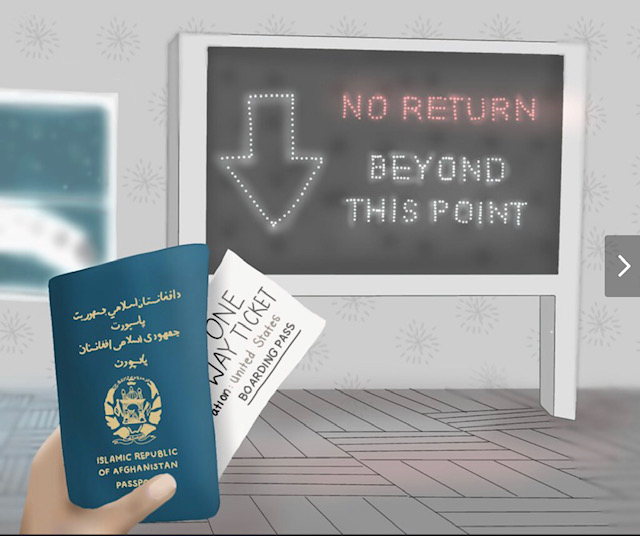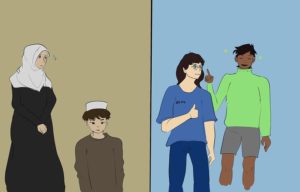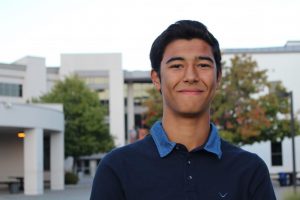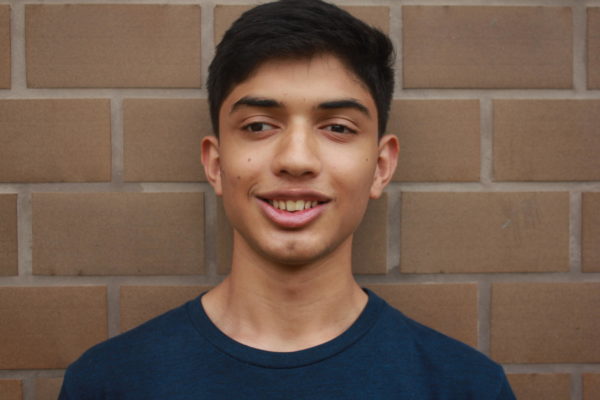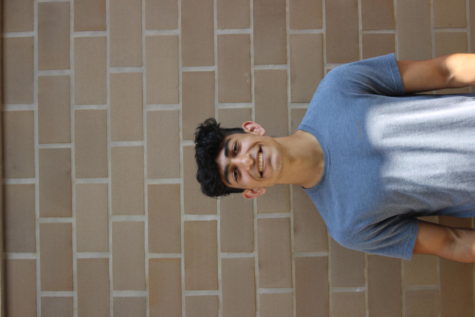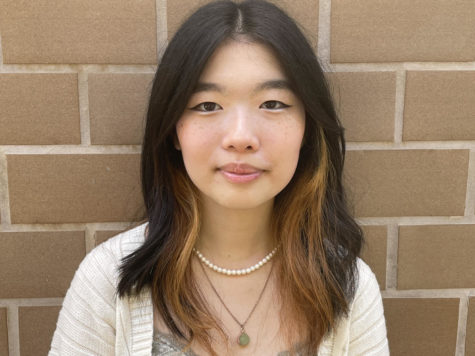An Afghan refugee retraces his former life and culture
Like many Afghan refugees, he embarks on a one way journey to America unknowing if or when he will be able to return to Kabul.
February 10, 2022
**Due to confidentiality and privacy reasons the interview subjects’ name is not disclosed.
My daughter, every time she sees airplanes, she’s telling me to take her back to her grandma in Kabul. I used to tell her last year [that we would return], and now it breaks my heart that I can not promise her that I’ll take her next year or next month.”
He talks in a tone of sadness as he shares the story of his lost beginnings slowly being destroyed by the same aspects that made him. He holds back tears talking about the destruction of his beloved hometown and his once closely-knit family.
These memories bring him great pain, but they are an inseparable part of his identity.
A forgotten life
He was born in Kabul to a middle-class Afghani family with parents who were sociology professors at the University of Kabul. Growing up he “was a very curious boy [with] a keen interest in geography.”
He explained how he always wanted to travel the world and especially see the United States. However, he felt he never would have wanted to live in the US because he wanted to stay in Kabul forever.
“The city had this kind of attractiveness that once you visit, you will become attracted to it and you always want to visit again,” he said.
However, this view of Kabul slowly began deteriorating. He was studying data science at Pune between 2000 and 2005, around the same time that the Taliban were approaching the peak of their power in Kabul.
“Everything happened so fast and I didn’t know that would be the last time I would be able to peacefully live in Kabul,” he recalled.
As the Taliban started gaining more influence in the late 2000s, he was terrified and had to find a way to leave. Without his wife or daughter knowing, he applied for government employment in the United States.
He was hired. However, even after being hired by the United States Government, he chose to work out his beloved hometown in hopes that the situation in Afghanistan would become better. However, in 2011 when the Taliban gained more power, he became aware of the potential consequences.
“I realized that working with the United States would mean that my family and I would be known as traitors and our life would be [in] danger,” he said.
He quickly attempted to flee Afghanistan by applying for a special visa made possible due to his employment with the United States. In 2012, he was successfully able to immigrate.
Settling in the land of “hope” and opportunity
He feels that when he first came here, his English was not good, which made him feel like an outcast. At times, he felt that there was no hope in the land of hope and opportunity.
“When you initially come to the US and you try to adapt to the system, it is a great challenge,” he said.
Eventually, after working hard, he was able to become a resettlement agent for the Jewish Family and Community Center. He now resides in Concord, CA, and is able to provide a suitable life for his wife and two daughters.
A destroyed homeland
Even after settling, the absence of Kabul is something he can’t live without; he feels that nothing can beat the beauty of the place one calls home.
“Kabul is one of the most beautiful cities on the planet,” he said.
He explained how once the Taliban captured Kabul again this past August, it was the most heartbreaking thing for the people living inside the country. He mentioned how sad it is for him to see the diversity sucked out of Kabul, and that the atmosphere is nowhere near as vibrant or as alive as it once was.
Afghanistan’s economic issues are now so dire that according to him, some say “more than 95% of the Afghan people will live under the poverty line” by next year. The country’s stability and harmony, which took years to build, were destroyed in a few weeks.
He, his family, and his friends are all devastated by the Taliban’s advances.
“There is a general sense of hopelessness of depression that has happened to people and to people [in Kabul] in particular because we can’t [return],” he said.
Hope for the future
His family members in Afghanistan have lost their jobs and now must stay at home without any source of income. Other friends who were in the army or police force, including judges and other civil servants, were also dismissed. A majority of female teachers and female students can now no longer attend school.
He is unable to think about the state of Kabul without tears in his eyes, and just hopes that there will be a day when he can return.
“I’m scared for a future in which my daughters are unable to speak the language, and are unable to retrace their heritage. For me, that would be the most devastating thing to come out of this,” he said.
With a face of sadness that portrayed years of love to his country, he stated, “My deepest regret, one that will stay with me until the end of my life, is that I didn’t look back as I was leaving my home or Afghanistan. I lost my Afghani heritage there.”

